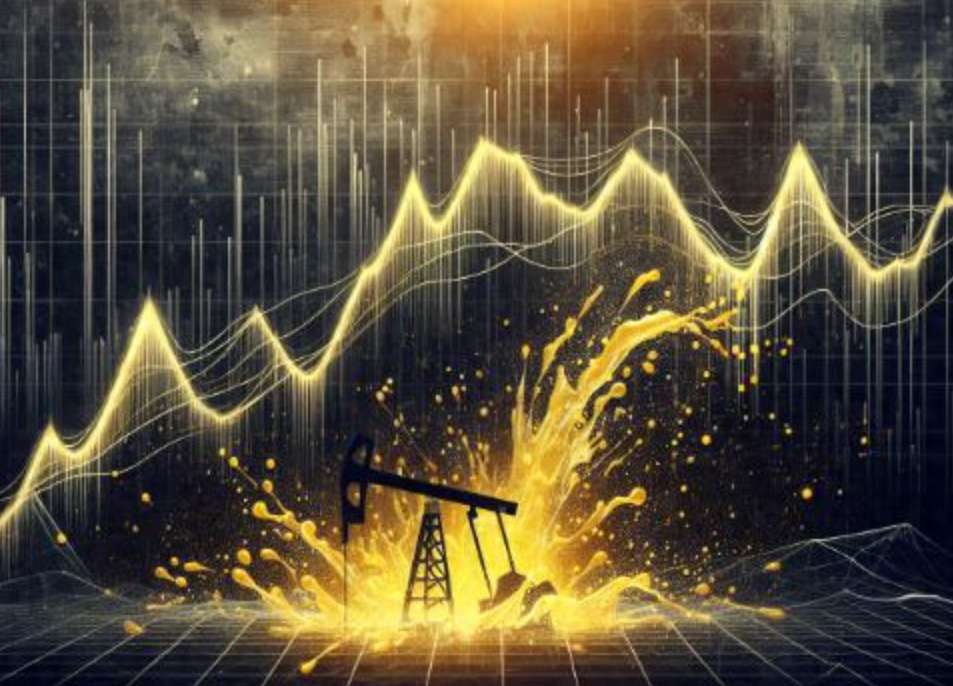New US Sanctions Hit Russian Energy Exports
Advertisements
As the global oil landscape shifts, recent developments surrounding U.S. sanctions on Russian energy have sparked a notable reaction in the market, particularly among speculators who are poised to capitalize on rising prices. The importance of these movements cannot be overstated, especially as they could signal a turning point in oil valuation across the globe.
In a strategic pivot, U.S. President Joe Biden has previously adopted a cautious stance regarding sanctions against the Russian energy sector. His reluctance stems from fears that cutting off Russian energy exports could lead to skyrocketing gasoline prices worldwide. However, recent assessments indicate that the global oil supply has become more stable, and inflation pressures have eased somewhat, thereby readying the ground for more comprehensive sanctions against Russia's oil industry as the conflict in Ukraine nears its fourth anniversary.
U.S. Treasury Secretary Janet Yellen recently articulated a firm approach, stating, “The United States is undertaking sweeping actions against major revenue sources for Russia. Through today’s sanctions, we are increasing the risks associated with oil trading with Russia.” This declaration underscores a shift in the administration’s strategy, signaling a readiness to confront Russia more aggressively on the energy front.
The Russian Foreign Ministry reacted strongly, asserting that the U.S. is making an attempt to inflict damage on the Russian economy even while aware of the potential repercussions on global market stability. The statement highlighted that the new sanctions are not just random actions but are occurring amidst what was termed a “dishonorable regime,” stressing that Russia would respond decisively to Washington's perceived hostilities.

In the run-up to the announcement of sanctions, oil prices experienced a surge last Friday. Contributing factors included apprehensions regarding potential new restrictions coupled with severe weather conditions in the U.S. and wildfires in California, which could affect global energy supplies. Upon opening on Monday, oil prices continued their upward trend, reaching heights not seen in over three months.
Analysts and traders are now projecting that Russian oil exports will bear the brunt of the latest sanctions, as major buyers may turn to alternative sources in the Middle East, Africa, and the Americas. This shift is expected to escalate both prices and transportation costs. Industry expert Harry Kachingiri from Onyx Capital Group noted, “The latest round of sanctions targeting major Russian oil firms and a significant number of tankers will have a substantial impact, particularly on India.”
Interestingly, even before Washington fully announced its comprehensive sanctions plan against Russia's energy sector, fund managers had already amassed the largest net long positions in Brent crude oil seen in the past eight months. Factors such as forecasted colder winters in the Northern Hemisphere and the anticipated attempts by the incoming president to restrict Iranian oil flows have driven these market movements.
Data released last week revealed that, as of January 7, speculative traders had increased their overall long positions in global crude benchmarks, with net long contracts for Brent crude rising by nearly 40,000, a total of almost 227,000 contracts. This uptrend has primarily been fueled by heightened long contracts, whereas short positions have slightly diminished. This bullish sentiment among speculators indicates a strong belief in a continued upward trajectory for oil prices.
The new sanctions specifically target more than 180 vessels associated with Russia’s “shadow fleet,” which Moscow has reportedly been using to sidestep existing oil restrictions. Additionally, two of Russia’s primary oil producers—Rosneft and Surgutneftegas, along with their subsidiaries—have been blacklisted. Officials predict that these measures will significantly diminish Russia’s oil revenues, leading to billions of dollars in monthly losses for the Russian economy. An anonymous senior official noted that this constitutes the most severe sanctions placed on the Russian energy sector to date.
Since the onset of the conflict, concerns have lingered over how surging inflation could disrupt global oil markets. Back in 2022, the G7 implemented an oil price cap on Russia in an attempt to limit revenue from its oil exports. Over time, however, the effectiveness of this strategy has waned as Russia employed various tactics, including the use of an aging “shadow fleet” of tankers to avoid sanctions.
Despite the implementation of new sanctions, the responsibility for enforcement will ultimately fall to an incoming administration that could also reconsider these measures. When asked whether there have been discussions with the incoming president's transition team regarding these sanctions, a senior government official remained non-committal but suggested that these actions could provide leverage for future negotiations with Russia regarding the conflict's resolution.
While the previous administration extensively utilized sanctions as a diplomatic tool, the incoming president expressed concern during last year’s campaign about the potential impact such sanctions could have on the U.S. dollar and its status as the world’s reserve currency. At the New York Economic Club last September, the president remarked, “I firmly assert that sanctions should be used against states that merit them, then I will consider lifting those sanctions.” Furthermore, he indicated a desire to minimize the use of sanctions going forward.
The unfolding situation around oil prices and the geopolitical landscape suggests that we may be witnessing a critical period of transformation. As the world looks to alternative energy sources and grapples with fluctuating supply chains, the strategies and decisions made in this pivotal moment will resonate through the global economy for years to come. Investors and analysts alike will need to keep a close eye on the intertwined dynamics of energy supply, geopolitical developments, and market responses in order to make informed decisions in this rapidly evolving scenario.
Leave A Comment